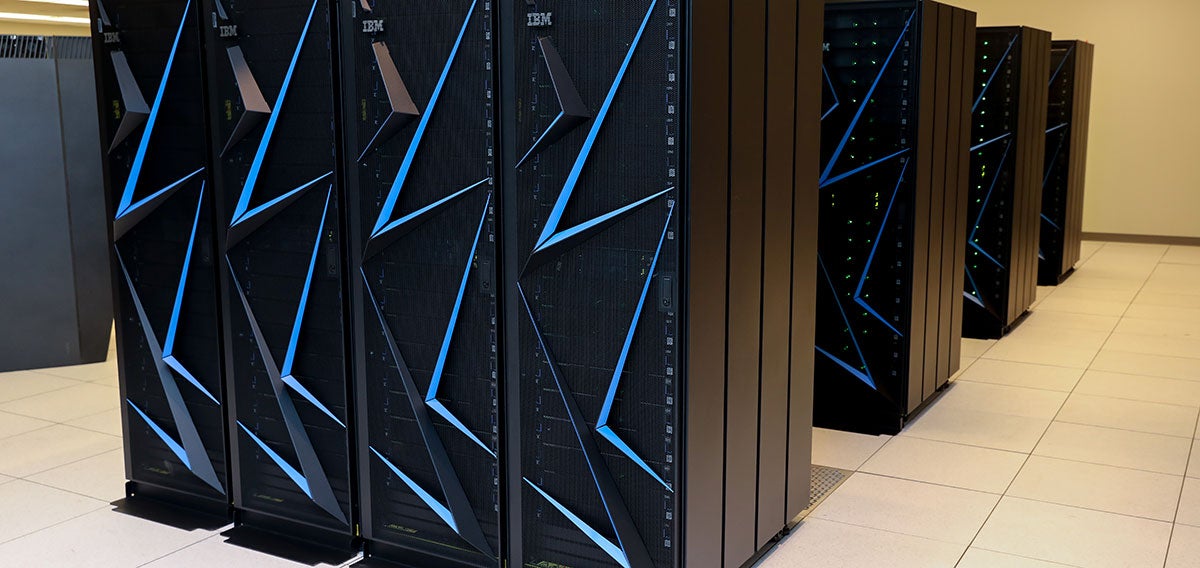Computational Microelectronics
RPI’s strength in computation across scales has applications for both the present and future of microelectronics. Our researchers model new material structures, properties, interfaces, thermal and electronic transports, devices, processors, and circuits using novel quantum, atomistic, and continuum simulation methods. This work is enhanced by campus resources including the AiMOS supercomputer, other large-scale computing architectures, and access to cloud computing with electronic data automation capabilities.

To envision the next generation of microelectronics, researchers harness the computing power available at RPI to predict outcomes and problems in design, manufacture, and function.
New perspectives on circuit design and the interactions of hardware and software will have important implications, not just for semiconductors, but the nature of computing.
Artificial intelligence will aid in developing future chips, and future chips will enable better AI, so researchers are working to increase the workloads and lower the costs of machine learning.
More efficient and sustainable fabrication will also lead to overall efficiency and sustainability across multiple industries through modeling, analytics, and automation.
Rensselaer prioritizes the social implications of research, and this can be seen in our approaches to education, ethics, diversity, and policy development.